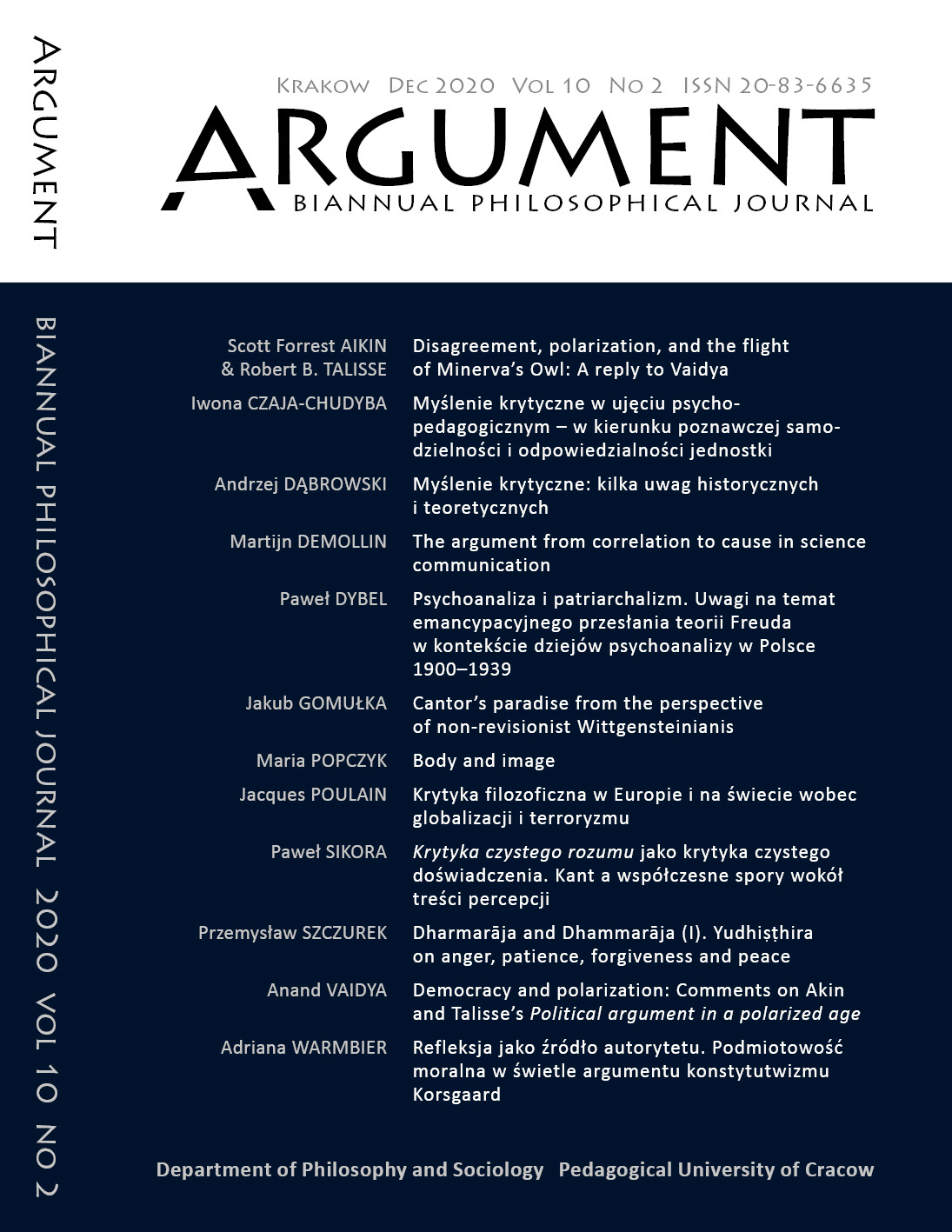Myślenie krytyczne w ujęciu psychopedagogicznym — w kierunku poznawczej samodzielności i odpowiedzialności jednostki
DOI:
https://doi.org/10.24917/20841043.10.2.2Słowa kluczowe:
constructive criticism, barriers to critical thinking, fostering constructive criticismAbstrakt
Critical thinking in terms of psycho‐pedagogy: towards individual cognitive independence and responsibility: The paper is devoted to the methods of recognition and development of critical thinking. In the initial part synthetically are presented the views of researchers connected with an education perspective (the definition and features of critical thinking). Within this aspect crucial appears the question: why are we afraid of criticism? What are the reasons why we do not apply it in contact with the cultural message, with the opinions and actions of people? For relatively seldom is it used as a support in discussion, in making decisions and choices. In an attempt to answer such formulated problems presented is an outline of the author’s classification for inhibitors that prevent or hinder the application of critical thinking. Here the main claim is that in the modern world of news excess and the chaos of values, critical thinking as a manifestation of cognitive self‐reliance and responsibility should become the competence characterizing each individual. Hence, the author formulates some recommendations concerning pedagogical practice. They are implied from the author’s concept of constructive criticism, the adopted the principles and methods supporting critical thinking.


